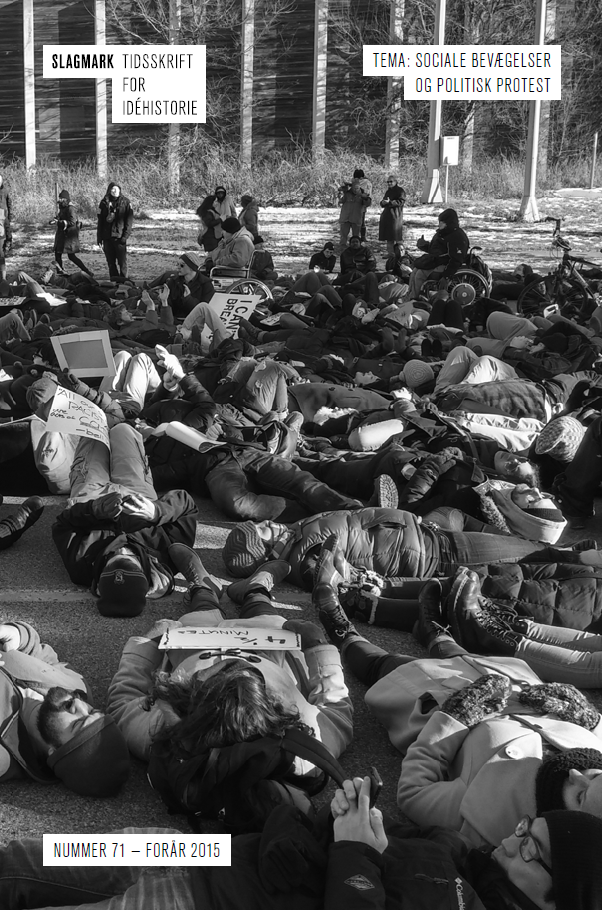Demokrati versus repræsentation:
Sociale bevægelser og teorien om ’imperativmandatet’ i Den Franske Revolution
DOI:
https://doi.org/10.7146/sl.v0i71.107311Keywords:
Radical democracy, Varlet, Imperative mandate, French Revolution, Direct democracyAbstract
This article investigates the theory of an imperative mandate as presented in the radical French revolutionary Jean-François Varlet’s text Project for a Special and Imperative Mandate from 1792. This text is taken as, and shown to be, representative for a widespread understanding of radical democracy during the French Revolution in which deputies were not understood as ‘representatives’ but as ‘mandataries’ who were legally bound to follow the instructions of their commettants. As an essential part of this radical conception of democracy, social movements were to be constantly mobilized and able to supervise the political system. This entails a shift in the balance of power from the state to the social movements, and as such it expresses a different conception of democracy than that of liberal democracy with its rule of law and state monopoly of violence.
References
Alpaugh, M. (2015). Non-violence and the French Revolution. Cambridge: Cambridge University Press.
Burke, E. (1887). Speech to the Electors of Bristol. I The Works of the Right Honourable Edmund Burke: Vol. II, London: John C. Nimmo.
”Extrait des deliberations” (1957) tekst nr. 11. I W. Markov & A. Soboul (red.), Die Sansculotten von Paris. Berlin: Akademie Verlag.
”Extrait du registre” (1957) tekst nr. 13. I W. Markov & A. Soboul (red.), Die Sansculotten von Paris. Berlin: Akademie Verlag.
Fitzsimmons, M. (2002). The Remaking of France. Cambridge: Cambridge University Press.
Gauthier, F. (2014). Triomphe et mort de la révolution des droits de l’homme et du citoyen. Paris: Syllepse.
Genty, M. (1987). L’apprentissage de la citoyenneté. Paris: Messidor.
Guillon, C. (2009). Notre patience est à bout. Paris: Radicaux libres
Jefferson, T. (2012). Brev til James Madison. I N. v. Eggers, M. Thorup & M. H. Jessen (red.), Den Amerikanske Revolution (s. 232-235). Aarhus: Slagmark.
Leclerc, T. (2009 [1793]). L’Ami du peuple, nr. 13. I C. Guillon (red.), Notre patience est à bout. Paris: Radicaux libres.
Lee, D. (2010). Civil Law and Civil Sovereignty. Ann Arbord: Proquest.
Madison, J. (2012 [1787]). Føderalistbrev nr. 10. I N. v. Eggers, M. Thorup & M. H. Jessen (red.), Den Amerikanske Revolution (s. 215-220). Aarhus: Slagmark.
Manin, B. (1997). The Principles of Representative Government. Cambridge: Cambridge University Press.
Robespierre, M. (kommende, 2015). Udkast til erklæring om menneskets og borgernes rettigheder. I N. v. Eggers, B. Nygaard, M. Thorup, J. Kjærgård & M. H. Jessen (red.), Den Franske Revolution. Aarhus: Slagmark.
Rousseau, J.-J. (1987 [1762]). Samfundspagten. København: Rhodos.
Rose, R. (1978). Gracchus Babeuf. London: Edward Arnold.
Slavin, M. (1967). Jean Varlet as a Defender of Direct Democracy. The Journal of Modern History, 39(4), s. 387-404. doi:10.1086/240121
Soboul, A. (1980 [1958]). The Sans-culottes. Princeton, NJ: Princeton University Press.
Varlet, J.-F. (2009 [1792]). Projet d’un mandat spécial et impératif. I C. Guillon (red.), Notre patience est à bout (s. 54-65). Paris: Radicaux libres.
Varlet, J.-F. (2015). Erklæring om menneskets rettigheder i samfundstilstanden. I N. v. Eggers, B. Nygaard, M. Thorup, J. Kjærgård og M. H. Jessen (red.). Den Franske Revolution. Aarhus: Slagmark.
Venice Commission (2009). On the Imperative Mandate and Similar Practices. Hentet fra http://www.venice.coe.int/webforms/documents/default.aspx?pdffile=CDL-AD(2009)027-e





